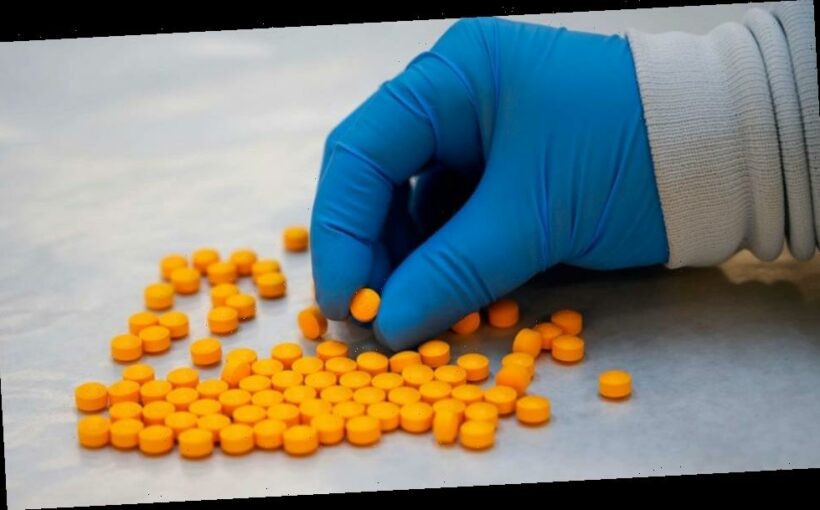When my sister Denise was found dead in the summer of 2019 due to an apparent overdose, my family demanded to know why — and how.
Denise, like millions of Americans, battled an addiction disorder for most of her adult life. My sister was troubled but not stupid. Although she battled addiction, it seemed unlikely that she would knowingly take something that would cause her death.
When the initial toxicology report results came in, the picture became clearer. Denise had alcohol, marijuana and fentanyl in her system. As we meticulously unraveled her last day, we discovered that she had apparently bought marijuana from a location in rural New York and asked a friend for a Xanax pill. Since neither alcohol nor marijuana alone would cause an overdose, it was clear the fentanyl was either laced into the marijuana or the pill.
According to the National Institute on Drug Abuse, fentanyl is a “powerful synthetic opioid analgesic that is similar to morphine but is 50 to 100 times more potent. It is typically used to treat patients with severe pain or to manage pain after surgery. It is also sometimes used to treat patients with chronic pain who are physically tolerant to other opioids.”
China is ranked as one of the world’s top producers of the precursor chemicals used to manufacture methamphetamine and fentanyl as well as the chemicals used to process heroin and cocaine, according to a 2018 U.S. Department of Justice report. There are approximately 160,000 chemical companies in China.
The DOJ report went on to say that there are the three major destinations for Chinese-sourced, illicit precursor fentanyl chemicals: Southwest Asia for opium and heroin production; Southeast Asia for opium, heroin and methamphetamine production; and Latin America for cocaine, methamphetamine and heroin production with a significant amount of precursor chemicals shipped to Central America for the production of methamphetamine, heroin, and fentanyl with one customer in mind: The drug cartels.
The distribution of compounds used in the drug trade is challenging. Avantor, a U.S. chemical company, recently stopped sales in Mexico of a key industrial chemical used by that country’s illegal heroin labs. The company had been selling acetic anhydride in convenient wine bottle-sized jugs in retail stores, which were traced back to Mexican drug labs. Once discovered, the company took swift action to dismantle the misuse of this chemical, according to news reports. Avantor spokesman Robert Donohoe told The Philadelphia Enquirer in an email: “Out of an abundance of caution, due to the potential for misuse of acetic anhydride outside of the regulated supply chain, the company chose to cease all production and sales of the product in Mexico” and “properly discarded” its remaining supply.
According to a 2020 national drug threat assessment from the Drug Enforcement Administration, Mexican cartels have sought to capitalize on the opioid crisis in the U.S. by unleashing a tidal wave of fake prescription opioid pills laced with fentanyl. These pills are virtually indistinguishable from legitimate prescription opioid pills.
To combat this, the DEA exercised its authority under the Controlled Substances Act to try to drastically reduce new analogue substances being introduced into the U.S. These tighter controls by the DEA reduce the incentive for drug trafficking organizations to invent new substances. In February 2020, Congress extended the DEA’s class scheduling authority for an additional 15 months but it is set to expire again in May of this year.
The fentanyl epidemic has affected all parts of American society. The Centers for Disease Control and Prevention estimated that over 81,000 drug overdose deaths occurred from May 2019 to May 2020, the highest number ever recorded in a 12-month period.
“Synthetic opioids (primarily illicitly manufactured fentanyl) appear to be the primary driver of the increases in overdose deaths,” the CDC said.
From 1999 to 2019, nearly 450,000 people have died from overdoses involving any opioid, including prescription and illicit opioids. The market for illicitly manufactured fentanyl continues to change and the drug can be found in combination with heroin, counterfeit pills and cocaine, the CDC noted.
These days, no drug on the streets of America is as it seems. As little as 2 milligrams of fentanyl could be a lethal dose. If a drug trafficker has just 1 kilogram of fentanyl, that could equal 500,000 lethal doses.
My sister Denise didn’t have a chance. But if fentanyl remains controlled, others might.
Source: Read Full Article
